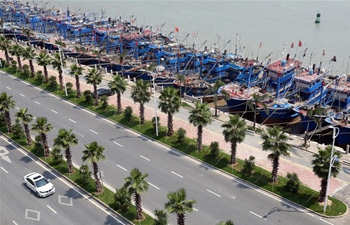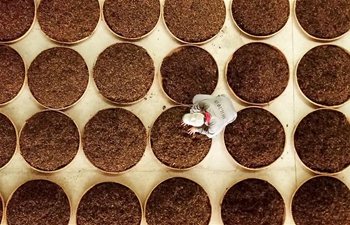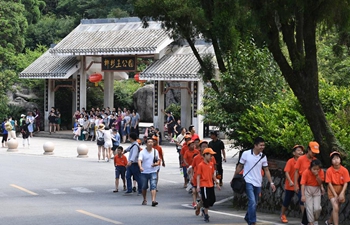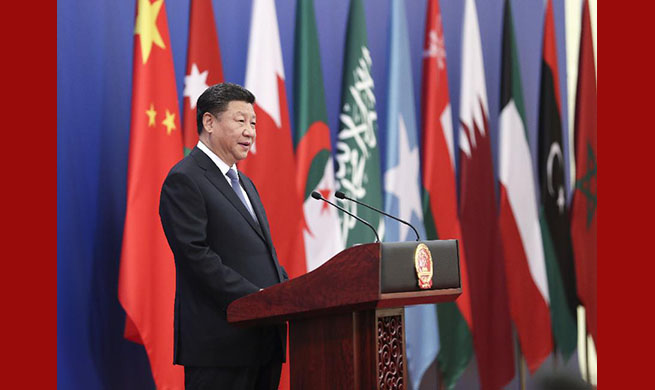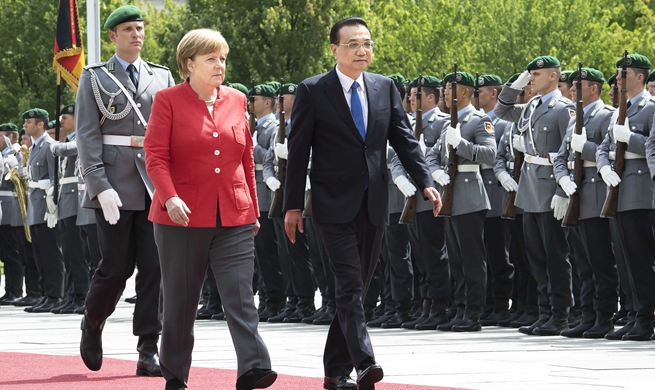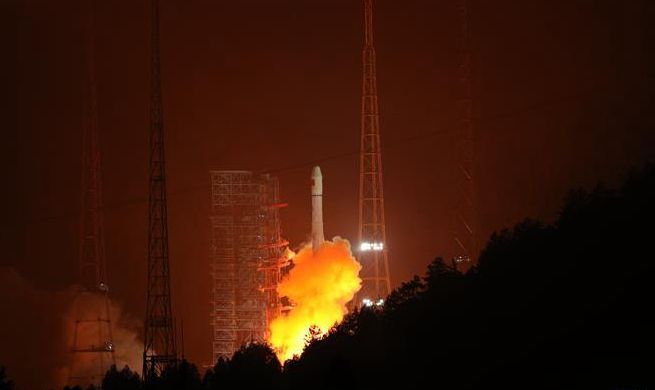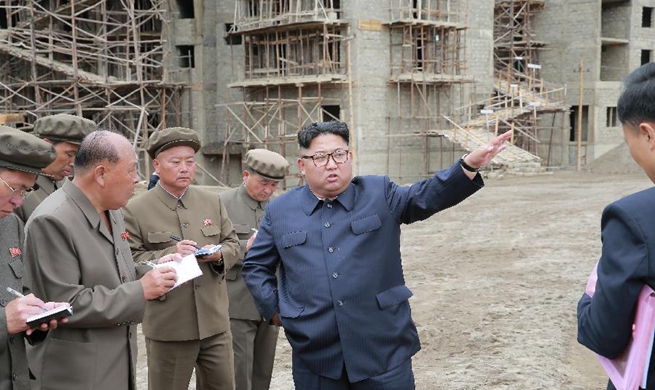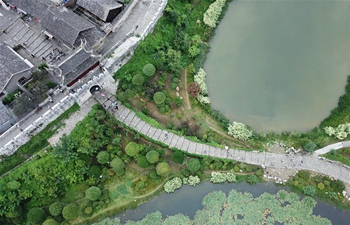GUIYANG, July 10 (Xinhua) -- Can mountain trees generate a fortune without being cut and sold? Guizhou Province, southwest China, has given an affirmative answer with its carbon sink trading project, which is helping to fight against poverty.
"Now I can make money by keeping my trees on the mountain!" said Fu Changrong, one of the poor villagers in Boluo village in Guizhou, a land-locked province.
After being individually numbered as carbon sink plants, Fu's 450 cryptomeria trees now earn him an extra 1,350 yuan (about 214.3 U. S. dollars) annually, at a unit price of 3 yuan per year.
On July 8, Guizhou officially launched a pilot project, which is literally translated as Individual Plant Carbon Sink Trading for Guizhou's Targeted Poverty Alleviation, and its online platform.
Trees, planted by poverty-stricken households, are given identity numbers, with the storage amount of carbon emissions calculated. Photos are taken of each plant, together with its information, then uploaded to the online platform, according to Fu Yeqiu, an official with Guizhou Provincial Development and Reform Commission.
All individuals, enterprises and organizations dedicated to low carbon growth can purchase the carbon sink trees via the platform, and the amount of sales will be deposited to the personal bank account of the tree owner, according to Fu.
In Boluo village, more than 30,000 carbon sink trees planted by 82 poor families were all purchased in a single day, bringing in more than 100,000 yuan.
As of now, 390,000 carbon sink plants grown by 739 poverty-hit households have been verified and uploaded onto the platform, worth 1.17 million yuan.
Forests involved in carbon sink trading must either have ownership certificates of forest and land, or are artificial afforestation converted from farmlands, according to the provincial official.
The participating poor households are also required to commit to protect the forest land, and report and replant damaged trees in case of natural disasters.
Guizhou aims for spreading the pilot project to 100 villages with 10,000 poverty-stricken villagers by 2020, raising 13.2 million yuan for poverty alleviation funds each year, according to the provincial plan.
Within a 10-year development period, Guizhou strives to raise poverty alleviation funds worth 130 million yuan, with hopes to lift 10,000 households out of poverty and prevent it from happening again.
"Carbon sink trading for poverty alleviation is a positive approach which integrates ecological conservation and fight against climate change and poverty," said Fu. "I believe carbon sink trading will turn ecological advantages into economic advantages."
Zhang Meijun, deputy head of Guizhou Provincial Development and Reform Commission, said carbon sink tree purchases would not only help the anti-poverty effort, but also offset the carbon emissions generated by individuals and organizations, raising awareness and determination of the society in coping with climate change.
Guizhou is not alone with its pilot project of carbon sink trading in China. Other provinces, such as Sichuan, Guangdong and Heilongjiang, have also made similar exploration attempts to fight poverty, marking a new path for China's poverty eradication effort via ecological conservation.
Ecological conservation and restoration should generate more benefits for the poor, according to a green poverty alleviation work plan jointly issued by six Chinese ministerial government departments in January, which stresses the balance between poverty alleviation and ecological conservation.
China will try out compensation methods through carbon sink trading, together with the national trading market of carbon emission rights, to further promote green growth and voluntary reduction of greenhouse gas emission, according to the work plan.
The country will encourage forestry carbon sink projects in exchange for compensation for reduced carbon emissions, with greater support for poor regions, the plan said.
To realize the 2030 Agenda for Sustainable Development, China is implementing a national plan to tackle the climate change, and has carried out guidelines to control air, water and soil pollution.





